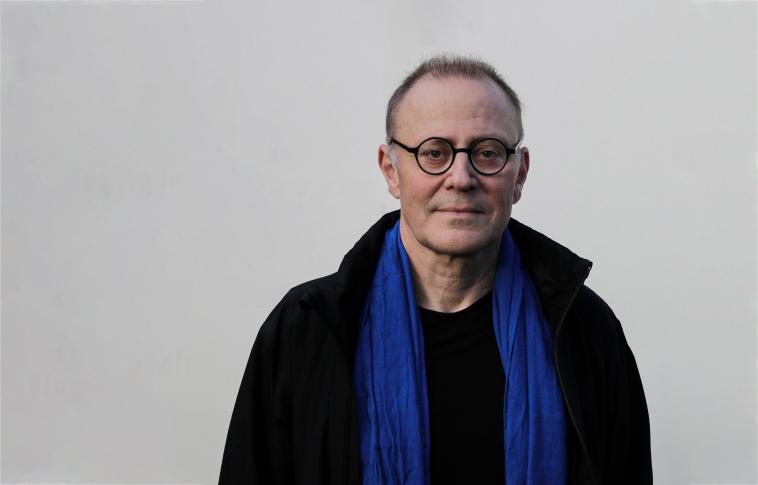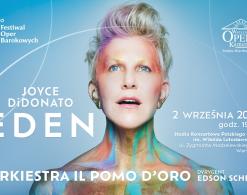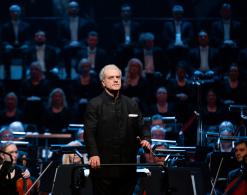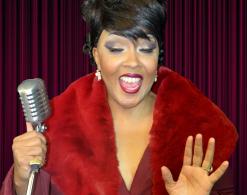Jörg-Andreas Bötticher: For me, everything starts with singing
Goldberg Festival reminds us of the connections of Bach's most famous student, Johann Gottlieb Goldberg, with Gdańsk. During the final concert, the Abendmusiken Basel ensemble will perform under the direction of Jörg-Andreas Bötticher. Igor Torbicki spoke with the Maestro.
Maestro, during the Goldberg Festival, you and Abendmusiken Basel will be playing music by Johann Erben, Caspar Fostera and Matthias Weckmann. Two of those composers had connections with Gdańsk. Do you notice any individual characteristics of music created by composers from this city?
I have been fascinated by Gdansk musicians and composers since a long time. Me and my ensemble specialize in 17th century music. We have done quite a lot of performances with music coming for Gdańsk. They had a special style, but hard to describe in just a few words.
Johann Balthasar Erben’s case is very particular. He was sent on a trip to study in whole Europe. He visited Paris and Rome, met Froberger and Weckmann. Especially his time in Rome could have influenced him quite a lot. Generally, Gdańsk composers, starting with Paul Siefert, and up to Baltazar Erben, but also further to Johann Valentin Meder and even Freisslich and so on, composed in a very high standard, especially in church music. Composers from Gdańsk had rich colors in their works, and used big variety of compositional styles.
And Forster... We can't really judge his whole style, because at the concert we will play only one Sonata. But in general, his works are very festive, a bit similar to Austrian style by Schmelzer or Biber, but just a little bit earlier in time. I would say that 17th century music is a high time for compositions in Gdańsk and I really appreciate all these musical treasures that we find and play.
And you not only play as an organist, but also conduct. What is your method for connecting these two roles?
This is an important question... First of all, the role of a conductor in 17th and 18th century was different than today. I’m not conducting a symphony orchestra – in that case playing organ would be impossible. Our ensemble is small, so I only need to give a few signs – and there are many possibilities to conduct such a formation with small movements, with eyes or even breathing. In Gdańsk, we will have 6 singers and 6-8 instrumentalists, and it’s vital to have a good connection with the continuo group, like with cello, gamba or double bass.
In the 17th and 18th centuries, conducting with your hands was not standard. Until the beginning of 19th century, some conductors were blamed of doing too much with their hands – a good orchestra would just not need it. I would say that it changed in the time of Berlioz and Mendelssohn.
Of course, there are certain limits to playing and conducting simultaneously. Sometimes the sound of organ is, in a way, conducting. But in some specific locations, like Trinity Church in Gdańsk, there is a certain difficulty, because the organ is on the side. It’s more challenging to maintain contact with the ensemble, so you definitely need either somebody else to conduct, or to have very good contact with your singers. During the Goldberg Festival I will play on positive organ, so without such difficulties.

So, across centuries, the role of a conductor changed from technical to more emotional?
It changed completely. Modern orchestra has to be very, in a way, neutral, and completely give their emotions to the conductor, who can ask them to do everything he wants. In the 17th century it was different, and I do that as well – as a conductor, I don’t have to tell them to represent my emotions. It’s similar to big band or jazz combo – everybody has their own role, but it does not mean that anybody has to hold back with their own emotions.
Let’s imagine a person, a music lover, who goes to a philharmonic from time to time, has basic musical knowledge about major composers in history, but does not know anything about historical performance. What would you recommend as a first step to get familiar with it?
That’s also a good question [laugh]. The thing that touches me, and might do the same for listeners, is a live performance. So first of all, I would recommend very good live concerts of musicians who are aware of historical performance practice. And if it's not possible – then we have the whole world of historical recordings (beginning of the 20th century), a huge treasure of a nowadays lost performance practice.
But in that case, a guide is needed. You know, there's so much manipulation in that industry... All the time you hear recorded musicians who will never play live like they do on recordings. Pop music is not the only genre with autotune – it happens in classical recordings, too. Therefore, when we discover things, we must remember that recordings are artificial products, which, of course, can also be good and give us a glimpse of how a piece of music might sound.
For me, everything starts with singing. If you have the opportunity to hear good singers or good choirs, don’t miss it. This could be the first step into history, the first criteria that determines the quality of a historical performance. Telemann used to say that “everything has to sing”, in composition itself, and in the performance, too. And then… I’d start looking for an advanced guide [laugh].
In my case, the recordings were vital – Marc Minkowski’s rendition of Bach’s Messe en si got me started into historical performance. And let’s hope that your concert with Abendmusiken Basel in Gdańsk at the Goldberg Festival will get many other people into it. Professor, thank you for your time.
Thank you, too.





